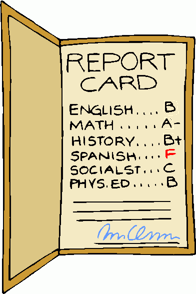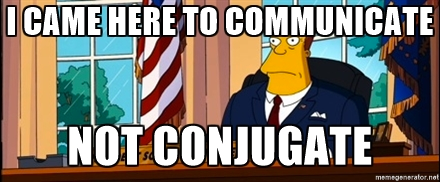The Blog for my English Students "Sometimes teaching, always learning"
PAGES (PERMANENT INFO)
- HOME
- TEACHER CONTACT
- ENGLISH LEVEL TEST
- 50 TOP WEBS 4 ENGLISH Students
- IRREGULAR VBs 4 DUMMIES
- ESSAY WRITING TIPS
- ACAPELA APP
- LEARNING WITH SONGS
- EXPRESSING OPINIONS
- PICTURE DESCIPTION
- ILLUSTRATED IDIOMS
- OTHER WORDS 4...
- CV TIPS
- ECA VOCAB
- ENG 4 ECA CS1
- ENG 4 ECA CS2
- ENG 4 ECA SEMI CS2
- ENG 4 ECA SEMI CS1
- ECOfeminism
- ALLtenses VIDEO LESSONS
- ECA ORAL PRES
- WAR ON PLASTIC
- ECOZINE
- ABSTRACTS
- SOCIAL CINEMA TO SHARE
- GLOBAL PHOTOGRAPHY
- ENG 4 LANDSCAPING CS1
- BOTANICAL GARDENS
- LANDSCAPE DESIGN VOCAB
- 8M_PHOTO CONTEST
- ENG 4 LANDSCAPING CS2
DICTIONARIES & WORLD DIGITAL LIBRARY
Monday, 7 December 2020
Monday, 30 November 2020
are you interested in environmental education? Listen to our ECA students talk...
Environmental educators raise awareness and promote active problem solving. They may instruct people of all ages in a variety of settings, but overall they encourage each individual to change their behavior within their own capacity.
Environmental education professionals work in parks, nature centers, non-profit organizations and schools. They teach students and citizens about important environmental issues in order to encourage behaviors that can mitigate or solve environmental problems.
Careers in environmental education can be found in a variety of places, and environmental educators can have a variety of titles, such as park natura
DO YOU WANT TO JOIN US?
You can listen to some of our ECA students here...
https://drive.google.com/file/d/1v6A8fGoObxPXLix7Ht7K1df7eSlnAl82/view?usp=sharing
Monday, 23 November 2020
Tuesday, 10 November 2020
Monday, 9 November 2020
DEFINITE AND INDEFINITE ARTICLE USE _ THE / A / AN
and now try these online exercises
to practice the article use in context !!
Tuesday, 3 November 2020
Tuesday, 27 October 2020
Human impact on the environment
As the human population continues to grow, so does our impact on the environment. In fact, recent research has shown that three-quarters of Earth’s land surface is under pressure from human activity. In this short film, spoken word artist Prince Ea makes a powerful case for protecting the planet and challenges the human race to create a sustainable future. Winner of the Film4Climate competition organized by the Connect4Climate Program of the World Bank (film4climate.net).
Do you what to know how trees talk to each other?
If so, listen to this TedTalk to find out...
"A forest is much more than what you see," says ecologist Suzanne Simard. Her 30 years of research in Canadian forests have led to an astounding discovery — trees talk, often and over vast distances. Learn more about the harmonious yet complicated social lives of trees and prepare to see the natural world with new eyes.
Monday, 26 October 2020
ARE YOU MOTIVATED TO LEARN ENGLISH?
Do you know why learning English is so important?
Here are some good reasons to learn English.
But there are many more...
the important thing is to find your own motivation...
Motivation is an internal impulse that brings us to complete an action. Without motivation, there is no action. It is what causes us to actively look for resources to guarantee our success.
Sunday, 25 October 2020
Saturday, 24 October 2020
Monday, 21 September 2020
Friday, 18 September 2020
Instructions to download your Digital English Textbooks (Career Paths)
Instrucciones
descarga y activación apps Express Publishing
1)
Instrucciones de descarga:
A) Android y Windows:
a) Abrir
el navegador de Internet en el ordenador. Dirigirse a la web correspondiente a
la colección del título que se quiere descargar y que viene indicada junto al
código de activación. www.careerpaths-esp.com
b) Cuando
la página se haya abierto con éxito, abrir la pestaña “Download Area” y desplazarse
hacia abajo con el cursor. Seleccionar “Windows App”. Tendremos que escoger si
bajarnos el contenido a través de la web o del “Express downloader”
c) Aparecerá
un cuadro invitando a introducir el código de activación. Introducir (en
mayúsculas) el S/N (código de activación) del título que se quiere descargar y
seleccionar “Check it”.
d) Aparecerá
una nueva página con la referencia a la aplicación que se quiere descargar.
Seleccionar el icono de plataforma adecuado en función del sistema operativo de
su dispositivo; ej. si dispone de un móvil Android haga clic en el icono de
Android.
e) La descarga
se iniciará en breves instantes.
2)
Instrucciones de instalación:
Para
instalar la aplicación en Windows se requiere conexión a Internet.
•
Utilizar el File Manager del
dispositivo para dirigirse a la carpeta de descargas (p. ej.; en Win7 C:\Usuarios\sunombredeusuario\Descargas).
Localizar el archivo .zip descargado.
•
Hacer clic con el botón de la derecha en el archivo .zip descargado, y seleccionar
Extraer Aquí.
•
Cuando la extracción haya finalizado, hacer doble click en el archivo .exe
descargado para iniciar la instalación. Seguir las instrucciones en pantalla.
3)
Instrucciones de activación:
Se
requiere conexión a Internet para activar la aplicación en cualquier sistema
operativo.
•
Iniciar la aplicación (haciendo un “click” o doble “click” sobre el icono
de la aplicación).
•
Se solicitará un correo electrónico. Facilitar una dirección de correo que
se revise con regularidad para recibir las notificaciones de nuevas
actualizaciones disponibles para la aplicación.
•
Introducir el S/N (código de activación) en el campo Passcode.
•
Hacer clic en Submit.
Los códigos
de activación (S/N) son válidos para un total de 3 activaciones. Si se activa
la aplicación en un dispositivo y posteriormente se elimina, p. ej.; al
formatear el ordenador, se requerirá activar el código de nuevo. Cuando la
aplicación se haya activado un total de 3 veces, será necesario un nuevo código
para futuras activaciones.
Resolución
de problemas:
• Si la descarga no se inicia por
sobrecarga del servidor, se deberá intentarlo de nuevo al cabo de unos minutos.
•
Cuando se hace doble “click” para la instalación de la aplicación en
Windows (archivo .exe) puede que haya un pequeño lapso de espera antes de que
el instalador se inicie, en función de la velocidad de la CPU.
•
Si la activación no se realiza, comprobar la conexión a Internet, que la
hora y fecha del dispositivo sean las correctas y que el S/N se haya
introducido correctamente y en letras mayúsculas.
Tuesday, 8 September 2020
The Best and Fastest Way to Learn Another Language...

It’s easier than you think to learn another language especially since you already know one.
Why Most of Us Failed in High School

The majority of us have failed to learn a second language even though we’ve all learned our first.
Everyone on the planet is fluent in at least one language. So we all have what it takes to learn at least one.
So why is learning a second language so hard?
It’s because it’s taught wrong.
We were placed in a cold classroom and expected to speak in front of our peers in a language we didn’t know. It’s bad enough that public speaking is the number one fear for people and that’s in their native tongue.
Now imagine trying to speak in a foreign one.
And when we made mistakes, we were punished with red marks on the page and low grades. And unlike most classes, our failures in a language class are public. This conditioned us NOT to speak for fear of looking stupid or saying something wrong.
Imagine teaching babies to speak this way. No one would ever learn to speak.
Learning Like a Baby

As babies, we learned our first language by immersion, listening and mimicking every single day. All we could do was listen, 24 hours a day, 7 days a week. And not once, did we receive a grammar lesson from anyone.
We didn’t study grammar books. Endlessly conjugate verbs. Memorize vocabulary. We didn’t get marked down every time we made a mistake.
And that’s why we learned it so well.
But as adults, we cannot afford to go back to this approach. We don’t have the time. And the good news is that we don’t need to because we can actually learn faster.
We can use our working vocabulary to accelerate our learning.
Learn it Like a Video Game

Every time you start a new video game, you have to learn the controls. The first time you play, it takes a while to learn the controls. But the next game and next are easier since there are many similarities.
But think back to how video games teach you the controls, or at least the good games. They give you just enough training so that you can start playing. That was your goal. To play a video game.
So the sooner you’re playing, the sooner you’re having fun. And isn’t that the whole point of the exercise? And if you’re having fun, you don’t even realize that you’re still learning how to play the game. It just happens.
And before you know it, you just react without thinking. And you’re doing things — hard things — with ease. How did you get so good? By practicing. But it didn’t feel like practicing because you were too busy having fun to realize that you were practicing.
Now imagine if video games taught you how to play the way languages are traditionally taught. They’d have you practice jumping for 20 minutes. Then crouching. Then tomorrow, more jumping and then sneaking. Then the next day… Well, you get it.

Learning a language is the same. You came here to speak. Not to conjugate. Or memorize. So the faster you can get to speaking, the better.
You need just a tiny bit of starting vocabulary and then you should start conversing. Isn’t that the whole point of the exercise? Isn’t that the goal?
So the sooner you get to speak, the sooner you’re having fun. And when you’re having fun, you won’t quit. And if you don’t quit, you’re going to learn. And you’ll learn much faster than the traditional boring methods.
You need to put in the time to learn anything. Imagine if that time was always fun. Before you know it, you’re speaking another language.
By the way, this is how music should be taught. But that’s a subject for another post.
But What About Grammar and Vocabulary?

Grammar is clearly important. But think back to how you learned grammar originally. And I don’t mean taking an English class in grade school. That’s just giving names and categories to things you already knew.
You learned grammar naturally by hearing it.
The same goes for Vocabulary. You hear words in context and surmise their meanings. You still do this in your native language. For example, if you don’t know what the word surmise means in the above sentence, you can figure out what it means because you understand all the other words.
Your parents didn’t drill into you the right way to use, go, went, going, gone. They didn’t run around the room pointing at objects saying their names. But you learned it before Kindergarten.
You learned all the necessary elements of grammar and basic vocabulary by experience and repetition. How? By listening and speaking.
This is the natural way of learning language.
Let me Tell You a Story…

My plan at this point in the article was to recommend multiple products that support this accelerated approach to language learning.
Unfortunately, I couldn’t find any.
Except for one. And in all honesty, it was developed by a friend of mine, Luke Pancoe with YLanguage.
So here’s his story…
He struggled for years to learn Spanish in grade school and failed. Frustrated, he took Latin in high school so he didn’t have to worry about speaking in front of anyone.
Then in college, Luke went to study abroad in Florence, Italy with no intention to learn the language since he thought everyone would speak English. But he was wrong. Fewer people spoke English than he expected.
Even though he couldn’t speak the language, he fell in love with Italy and its people and wanted desperately to communicate with Italians. He knew that this was holding him back from truly experiencing Italy like the Italians do.
Luke knew that the classroom approach didn’t work. So when he got home, he began a regimen over the next year watching YouTube videos, going to Italian meetups, talking with Italians online, reading grammar books, using different language apps like Duolingo and watching TV and films in Italian.
He was spending 7 to 8 hours a day for months in a desperate attempt to learn Italian. And in just under a year, he finally became fluent.
Armed with his new skill, he returned to Italy and it was like he was visiting a whole new world. For 3 weeks, he spoke only Italian. Being surrounded by his Italian friends and being able to easily converse with them, he felt what it’s like to be an Italian.
Next he learned Spanish and French. But this time it was much faster and required less effort. He was conversational in French in 4 months and Spanish in 3 months. Each time he learned a new language, he was able to optimize his process.
After learning 3 languages, Luke realized that he could teach anyone to be conversational in 3 months in any language by only dedicating 30 to 60 minutes a day. So he spent the next 2 years developing an online course called Italian in Your Pocket.
His system is basically everything I’m advocating in this article. It concentrates on speaking and listening. The very first week, his students are listening to conversations at normal speed and speaking.
Students, who put in the 30 to 60 minutes a day, are able to hold basic conversations totally in Italian with their fellow students in as little as 3 to 4 weeks.
The Language Revolution is Here

These results prove that traditional methods of classroom-style teaching can be greatly improved upon. Grammar and vocabulary do not need to be the center point for new students.
Hearing and speaking as soon as possible accelerates students’ understanding and speaking abilities in the new language. These quickly acquired skills reward students early and often, making the process of learning highly enjoyable. And because it’s enjoyable, students will want to continue learning. This positive feedback accelerates the learning process.
We need to have a real revolution in how we teach languages. Academia has failed nearly every student it’s encountered. We all have the ability to speak multiple languages and speak them well.
Tuesday, 24 March 2020
Wednesday, 1 January 2020
Happy New Year 2020!
With the completion of yet one more orbit around the sun we take our leave of one year and begin another. This time we also take our leave of the second decade of the twenty-first century and begin the third one! Time flies, as they say, it really does!
When I was a child, I thought a year was a very long time. Later, I thought that ten years was a long time. Now, I am inclined not even to recognize ten years as an especially long time. Ten years is not to be dismissed out of hand, but it is only, after all, ten years. Perhaps if we lived rather longer lives we might come to see centuries, and millenia in the same way as for the Earth.
Subscribe to:
Comments (Atom)
























